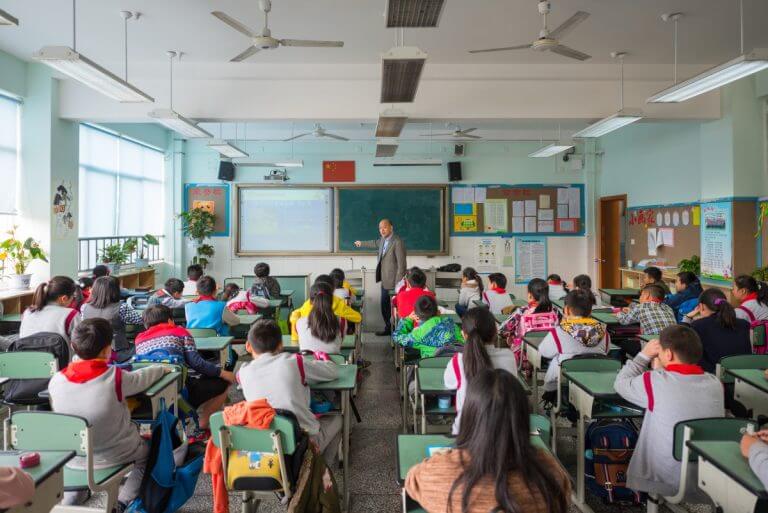
Teaching English in China could become a viable alternative for overseas Filipino workers, following the ban on moving to Kuwait after seven workers’ deaths.
Philippine Labor Secretary Silvestre Bello said China needs 100,000 English teachers, as the Philippines eyes China as a potential job market after banning Filipinos from working in Kuwait, according to ABS CBN News.
One of China’s biggest societal issues is a lack of teachers willing to work in rural schools, said The South China Morning Post. The government is implementing strategies to reduce this geographical inequality, and the influx of English-speaking Filipinos could be part of the answer.
https://twitter.com/johnsonwkchoi/status/955291811622223873
The Philippines and China may sign a bilateral agreement on the deployment of OFWs “within the month or next month”, Bello said in an interview on Filipino radio station DZMM according to ABS CBN News.
English teachers could earn as much as US$1,500 (PHP78,000) per month in China, where there is also a market for English-speaking domestic workers, he added.
The Philippines government is reportedly issuing the ban on working in Kuwait following the death of seven workers – one worker was found in a freezer with torture marks and indications she was strangled to death, reported Xinhuanet. ABS CBN News added that she was reportedly “roasted like a pig”.
Body of Filipino worker found in a freezer sparks anger against Kuwait https://t.co/ikkEGytzo2 pic.twitter.com/WweLGq6NZv
— Irobiko Chimezie Kingsley (@meziesblog) February 13, 2018
The Department of Foreign Affairs estimated there are about 250,000 Filipinos working in Kuwait, mostly working as domestic helpers.
The Philippines is heavily reliant on the income these workers send home to keep the economy afloat, according to Xinhuanet.
Bello said the government will take back any distressed Filipino workers from Kuwait. However, those who wish to stay in Kuwait will be allowed to do so.
Israel, Czech Republic, Germany and Japan are also potential new destinations for Filipino workers.







